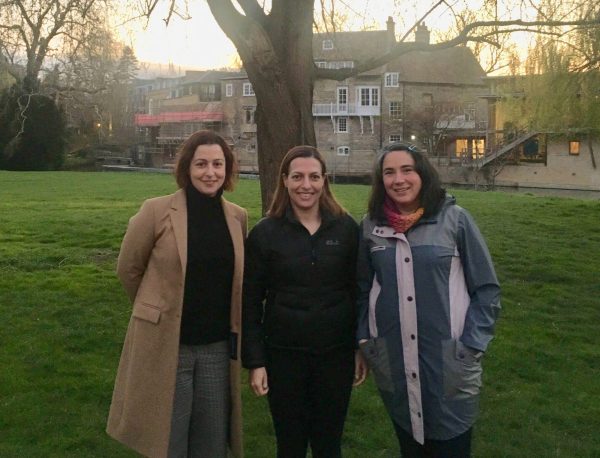
Position
Research Associate
Affiliation
Pathology
Keywords
Human Norovirus, Organoids, Gastroenteritis, Filipino, Woman, Public Health
I am a woman, a proud Filipino and, I love Public Health. I am a keen scientist who is passionate at understanding the molecular mechanisms of “why” and “how” virus evades the host and replicate productively.
I find excitement in exploring the usefulness of the organoid culture system to understand virus infections. With all of these efforts, my ultimate aim together with the other members of our lab is to help design and develop potential therapeutics against viruses that cause gastroenteritis.
I have been working on viruses for over 12 years, in particular, the viruses that cause gastroenteritis in animals and humans. Gastroenteritis is also known as infectious diarrhoea, which can be caused by bacteria, viruses or parasites. I first worked on animal viral gastroenteritis due to rotaviruses, caliciviruses, hepatitis E virus, toroviruses and coronavirus. Since moving to Cambridge, I joined the Goodfellow lab where we focus on human noroviruses (HuNoV), the leading cause of sporadic and acute gastroenteritis worldwide. HuNoV has been characteristically described as two-bucket disease because patients typically present severe diarrhoea and vomiting. The socio-economic burden as a result of HuNoV infection is estimated to cost over 60 billion dollars. Despite this, progress in developing drugs or vaccines has been slow due to the lack of detailed understanding of the molecular mechanisms of HuNoV replication.
There are significant questions that remain unanswered because of the technical difficulties associated with currently available virus culture systems. We developed a more robust culture system for HuNoV using intestinal epithelial cells (IECs) derived from human intestinal organoids. This breakthrough has opened opportunities to better understand molecular mechanisms of viral replication. Recently, we demonstrated that replication of HuNoV in IECs results in interferon-induced transcriptional responses and that HuNoV replication in IECs is restricted by the interferon response (Hosmillo et al., MBio 2020). The modulation of this response through treatment of small-molecule inhibitors enhances HuNoV replication.
Aside from using human IECs-derived from intestinal organoids, we explore the aspects of norovirus life cycle using a HuNoV replicon system established in human gastric tumour cells. Using both the organoid-derived and replicon culture systems, we evaluate drug candidates, identified by collaborating companies and institutes, that could potentially prevent and/or treat HuNoV infection.

